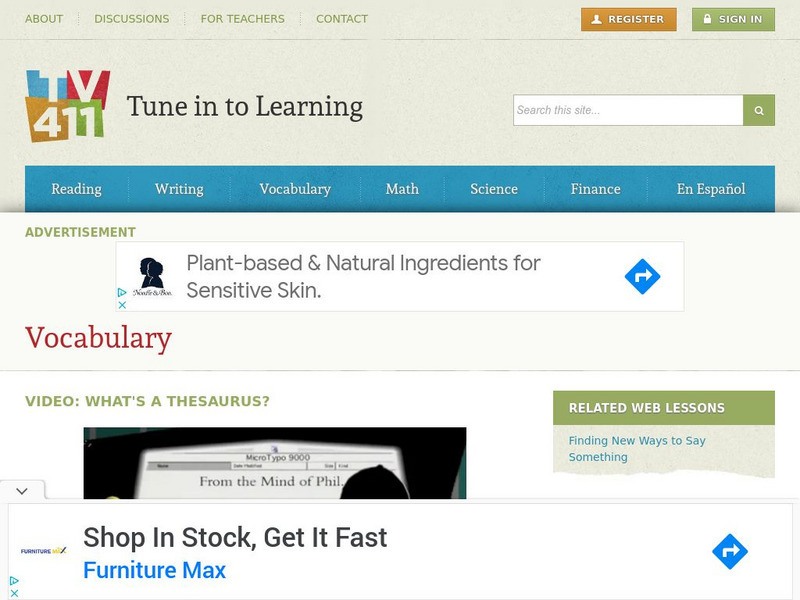SciShow
You Read More Slowly As You Get Older — Here's Why
Researchers have noticed a decline in reading ability starting in your 40s. And learning more about why this happens might help us tell the difference between healthy aging and Alzheimer’s disease.
TED-Ed
Who decides what's in the dictionary? | Ilan Stavans
While the concept of a dictionary dates back to ancient civilizations, the first English dictionary wasn't published until 1604. In the centuries that followed, many more dictionaries were written by individual authors who chose what to...
Wonderscape
Understanding Definition and Mood Clues
Discover how readers can use definition clues, signaled by words like "is" or "means," to directly understand the meanings of unknown words within a sentence. Learn how mood and tone clues, indicated by the atmosphere and the author's...
Wonderscape
Using Antonym and Example Clues to Understand Unknown Words
Learn how readers can utilize antonym and example clues to decipher the meanings of unfamiliar words encountered while reading. Explore examples and practice identifying these types of context clues to enhance vocabulary comprehension....
Wonderscape
Understanding Words Using Context Clues
Learn how to determine the meaning of unfamiliar words by using context clues. Context clues provide hints within a sentence or paragraph that can help deduce the meaning of unknown words. Explore different types of context clues, such...
Curated Video
Macbeth 5.7 Word Nerd: Crest
Unravel the origins of the word "crest" within the poignant context of Act 5 of Shakespeare's "Macbeth" with this insightful video. Delving into its etymology, this exploration sheds light on the word's historical evolution and its...
Curated Video
Macbeth 5.7 Word Nerd: Course
Delve into the fascinating etymology of the word "course" as used in Act 5 of Shakespeare's "Macbeth." This video offers an explanation of the origins and evolution of the term, shedding light on its significance within the context of...
Curated Video
Vocabulary: Context Clues
This video teaches kids how to define unknown words by uses clues around the word to figure out the meaning. It shares context clues where the definition is given, synonym, antonym, and an example. When kids use context clues they are...
Curated Video
4 Most Common Suffixes
Suffixes are letters or groups of letters at the end of words. It's important to know suffixes to be able to understand the meaning of words. Four of the most common prefixes are -ed, -ing, -ly, and -s,-es. This video teaches about each...
Curated Video
4 Most Common PREFIXES {Vocabulary}
Prefixes are letters or groups of letters at the beginning of words. It's important to know prefixes to be able to understand the meaning of words. Four of the most common prefixes are dis-, in-, re-, and un-. This video teaches about...
Curated Video
Literal versus Figurative
This is the video titled “Literal versus Figurative” which discusses idioms and adages and compares their literal and figurative meanings.
Curated OER
It's Important
Cookie Monster shows what the word important means using cookies as his visual aid. He says that gingerbread, chocolate chip, and sugar cookies are all important to him. Learners can discuss what is important to them.
Curated OER
The Many Meanings of Cool
A very neat word with multiple meanings is the center of attention in a fun musical video. The Read Between The Lions team of Sierra, Lionel, Leona, Cleo, and Theo get together to sing a song defining the word cool. Kids will sing...
Education Development Center
Tv411: Video: What's a Thesaurus?
This video explains how to use a thesaurus and what information it gives you. [3:09]
Imagine Learning Classroom
Learn Zillion: Using Footnotes in a Text
In this lesson, you will learn to figure out meanings of unfamiliar words and phrases by using footnotes. [4:28]




